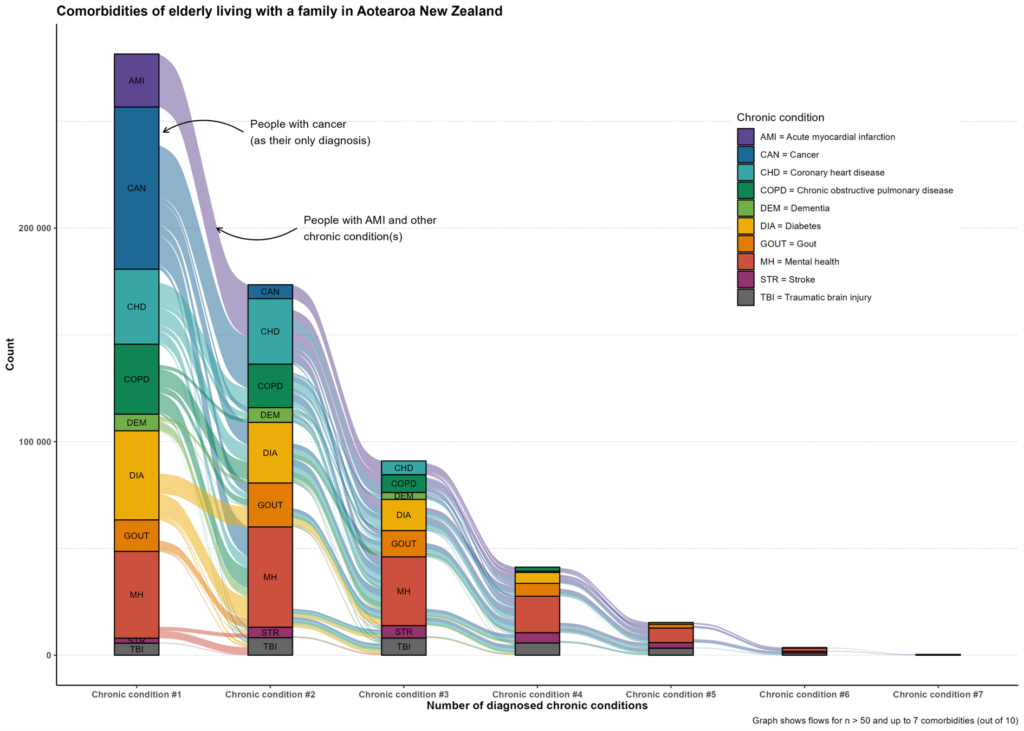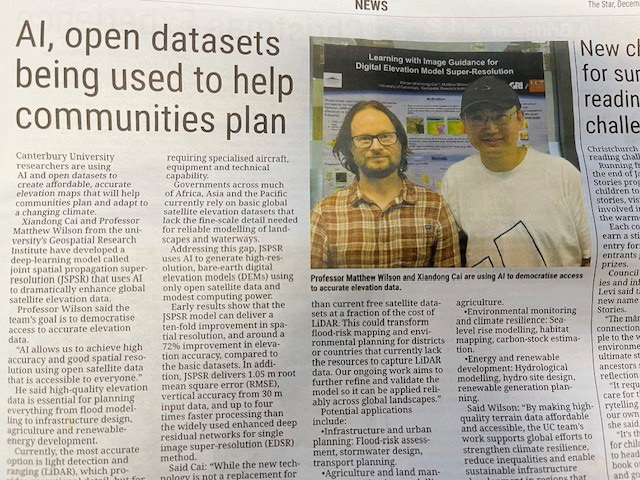Research team
Lukáš Marek (GRI GeoHealth Lab – UoC)
Simon Kingham (GRI GeoHealth Lab – UoC)
Funding
A Better Start – National Science Challenge
Duration
2022-2024
Project summary
A life-course approach is essential to inform health and wellbeing policies and programmes that make a difference for children, youth, adults and later in life. An understanding of the factors that impact individuals at different stages of their life courses is crucial for designing such policies and programmes. Chronic diseases such as cancer, cardiovascular disease, diabetes, mental health and obesity have a direct effect mainly on the middle and later life-course (slightly younger for mental health). However, the indirect effect of chronic diseases on whānau and families has been less well-studied, and is likely to have impacts across the entire life-course.
While the general focus of the wider project is to investigate the influence of chronic disease on the wider family and whānau at different life stages with four groups of interest: children, households, partners and carers, and elders. This particular part of the research focused on the elders experiencing chronic disease and how they impacted on the wider family and whānau. The study (i) identified older people with prevalent chronic conditions; then it (ii) evaluated household circumstances for such people; and (iii) quantified the health and social wellbeing of other whānau members.
This is an administrative cohort study that followed individuals and families over time. We compared results for individuals within families containing a chronic disease sufferer, with individuals within families not containing a chronic disease sufferer. This study built on our pioneering research on the impact of loneliness (Jamieson et al. 2019), frailty (Burn et al., 2018), incontinence (Jamieson et al., 2017), dementia (Jamieson et al., submitted), and polypharmacy (Jamieson et al. 2018; 2019) on older people.
To answer the research questions, we used mostly administrative data from the Integrated Data Infrastructure (IDI) that is a longitudinal dataset which holds linked individual and household level microdata from a range of Government agencies (e.g. housing, health, policing), Stats NZ surveys, and non-governmental organisations (Statistics New Zealand, 2013). However, to provide a broader context, we included additional data sets such as derived residential mobility and transience (Marek et al., 2021b), New Zealand index of socioeconomic deprivation (Atkinson et al., 2014) or Healthy Location Index (Marek et al., 2021a) that provided area-based measures of locally varying environmental and socioeconomic determinants.
Outputs
Underwood, L., Bowden, N., Teng, A., Dewes, O., Marek, L., & Milne, B. (2024). New Zealanders living with a family member who has a long-term health condition: cross sectional analysis of integrated Census and administrative data. International Journal of Population Data Science, 9(5).



